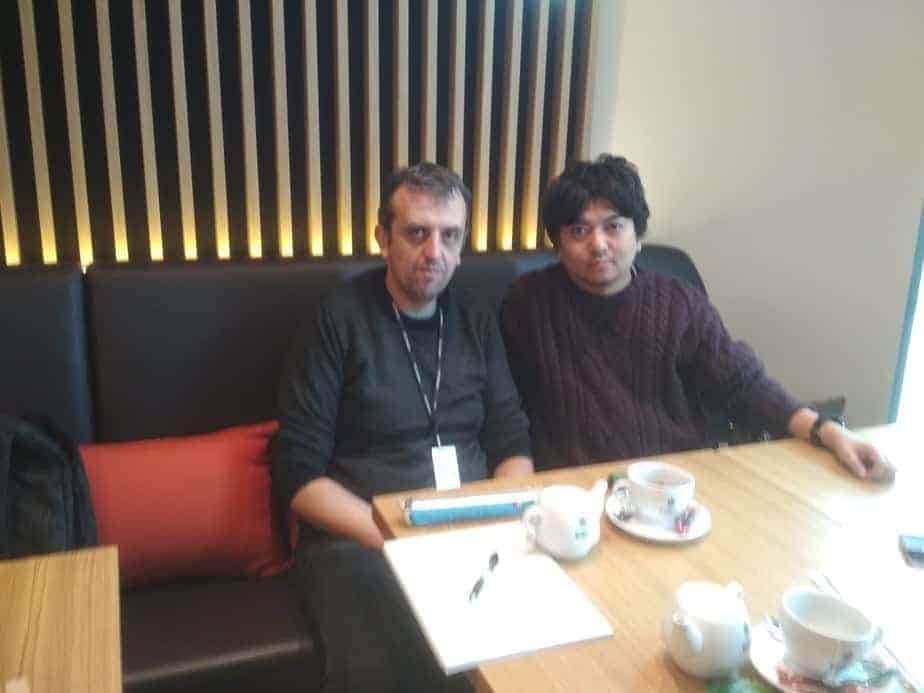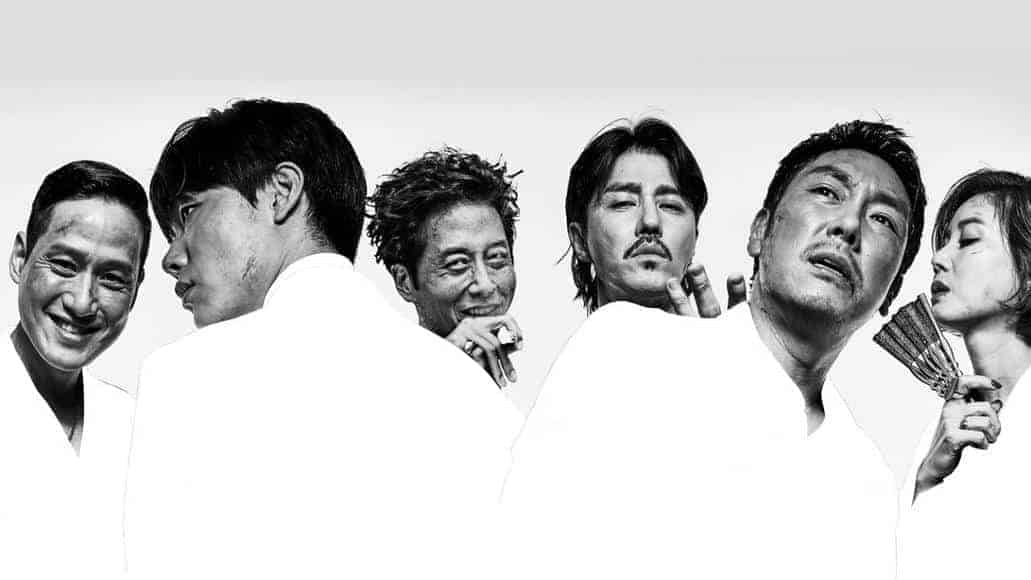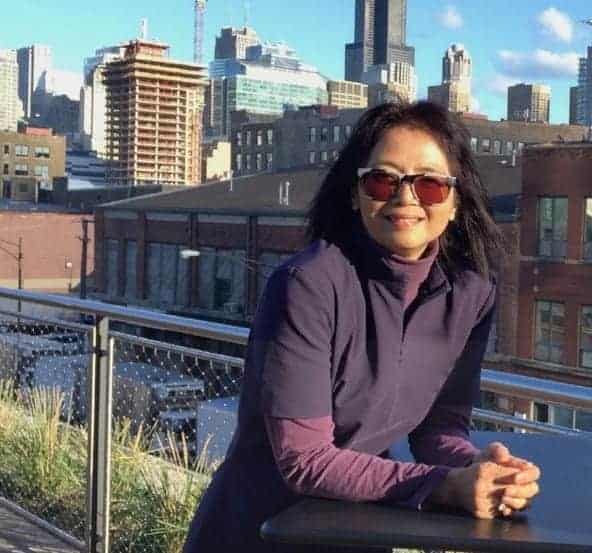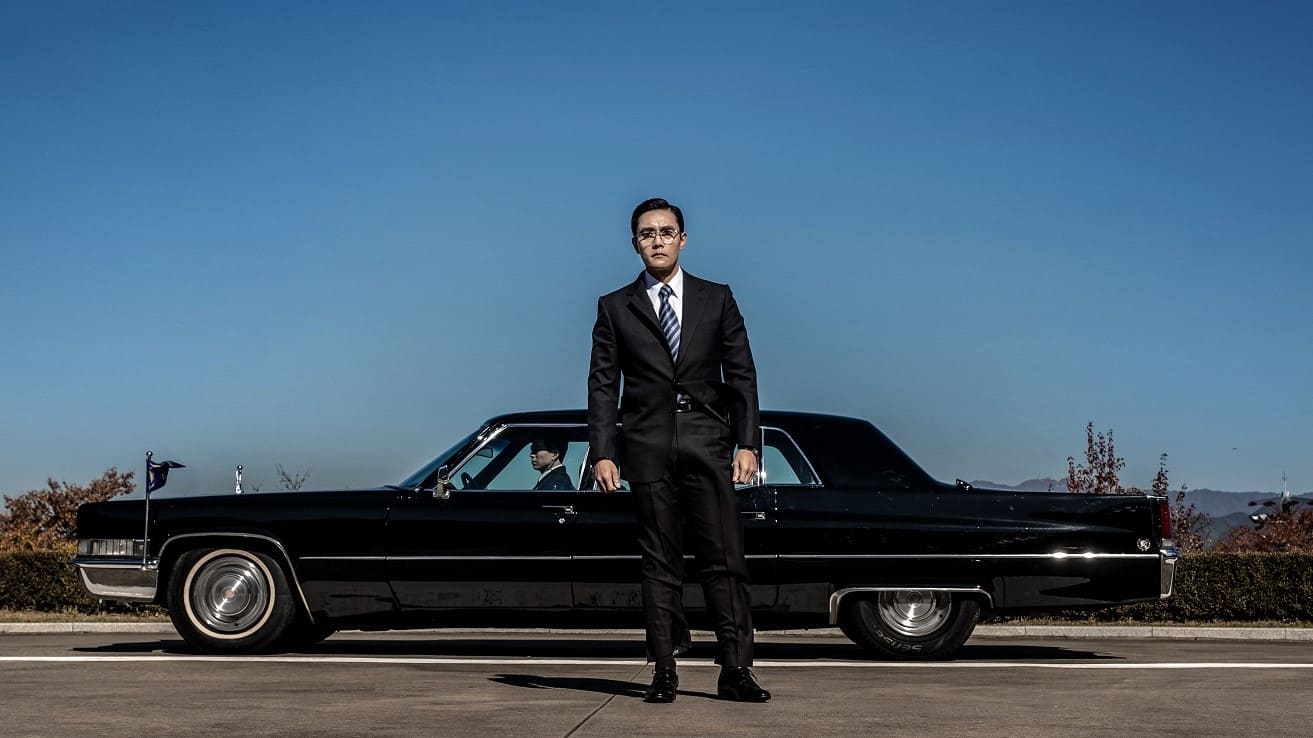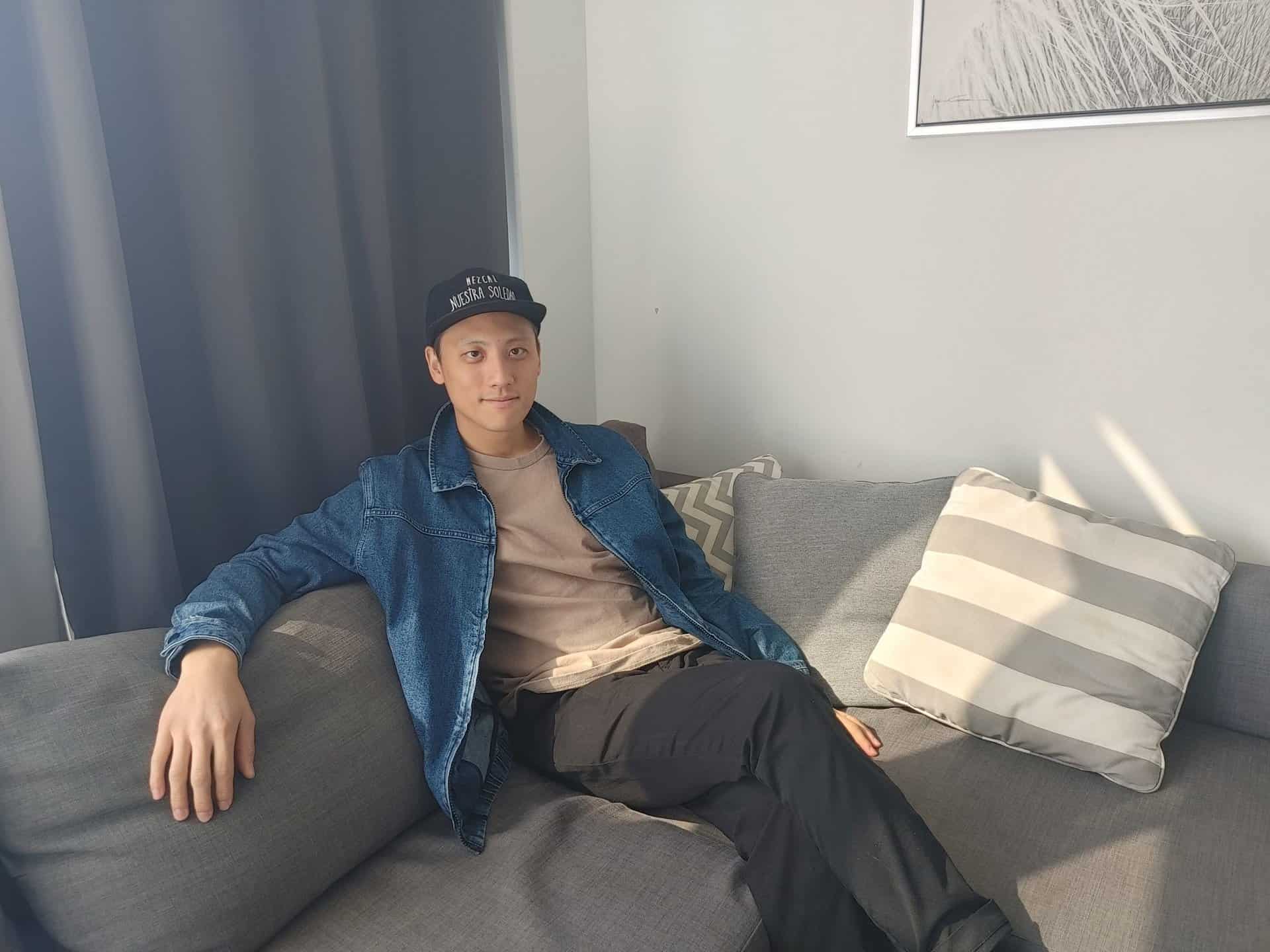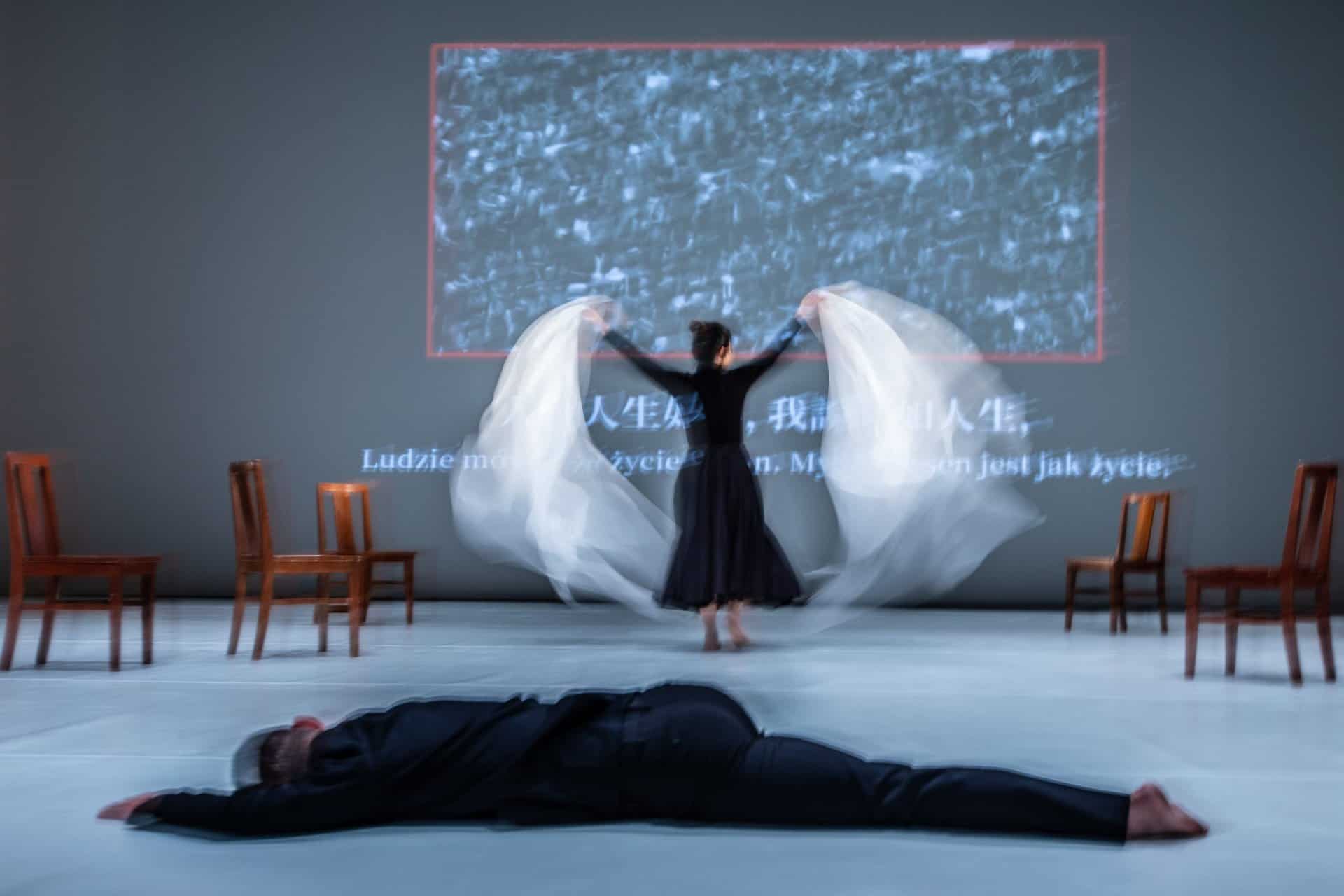Genta Matsugami was born in Hiroshima in 1981, he graduated from the Osaka University of Arts. His diploma film “Sanketsu no umi” received the Spectators Award at Pia Film Festival in 2005. He founded a production company 16 bit. inc. “Demolition Girl” is his feature debut.
On the occasion of “Demolition Girl” screening at Five Flavours, we speak with him about his career, the institution of family, stepping on various objects, ending a film properly and many other topics.

You started your career by winning an award at PIA. How did that help your career?
There was no direct influence to “Demolition Girl” but the main staff of that film was also in this movie, and this relationship was definitely helpful.
The film portrays the institution of family as declining. Can you elaborate on this?
I feel that the whole system revolving around the institution of family is problematic, for example the assistance from the municipality is not being sufficient, especially regarding the social help for kids, as we see in the case of the particular family in the film.
Men in the film are portrayed as scum, useless, and in general, lowlifes. Why is that?
The first reason is because I wanted the main character to stand out, that is why I created such a big gap between her and the rest of the protagonists. The second reason is because, although I am a man, I projected myself onto her character.

The protagonist in the film wants to leave the small town she lives and move to Tokyo. Why is that such a common motif in Japan?
The main reason is because she wants to get away from that horrible family setting. There is not a particular reason in the narrative that she wants to go to Tokyo specifically, but for many Japanese, Tokyo is a symbolic place, a place where narrative forms, it functions like the American Dream concept, making it in Tokyo.
Do you feel that love can be an alternative way out, as we see in the finale of the film?
In my opinion, it was not love between the two, it is something meaningful, but not necessarily love. Of course, there is a possibility that the two would be in a romantic relationship at the end, but it is not something the film actually implies.
What was the inspiration behind the story of the film?
My inspiration comes from my wishes and thoughts regarding that girl, because I want her to survive. Of course, other films also offer inspiration.
Does the footstepping fetish appearing in the film actually exist in Japan?
Yes, it is a thing. Of course it is not that common, but this kind of video can also be found overseas.

I found that the scene where the family fights is one of the most intense in the movie. Can you give us some details about the way you shot it?
I did not give the actors any particular advice. For the protagonist, this is her first acting role, she is not experienced. On the other hand, the father is experienced and the three actors discussed about the scene before the actual shooting and I liked this fact and I respected their discussion and what they decided, so the scene was actually the outcome of that discussion among them.
I find that one of the most common issues in Japanese film is that the directors do not know when to end their film, thus extending it for no apparent reason. However, this is not the case in “Demolition Girl” where I felt that the ending is perfectly timed. Can you tell us about that decision, to end the film there?
Giving the audience an obvious answer is very easy, but I did not want to do that. I always think what I should do with the ending of my films, and in this case, I let the protagonist smile, so that the audience can understand that something changes in her, but also it allows them to think about what exactly is happening.
Can you give us some details about the casting of the movie?
Casting always depends on the budget. The casting of the father and the brother of the protagonist was the result of a discussion with the casting director and the writer, after which I decided who is the appropriate actor for each role. Regarding Aya Kitai, however, the procedure was rather interesting, since a member of the stuff found her on Instagram and he suggested her to me. She was not an actor before, but what drew me to her is that she has not a fixed image, she is kind of transparent. I contacted her directly and then I decided she should be Cocoa, no auditions involved.
How did Aya Kitai feel, having to step on so many objects, from toys and balloons, to cake? (everybody laughs).
At the beginning, she just did it for the role, but eventually she started to enjoy it as something that allowed her to release stress and she found it a very refreshing experience.
So, now in her free time, she also steps on cake? (laughter)
It depends on your imagination (laughter)

Was it difficult cooperating with her, since she had not acted before?
The cooperation in general, was really good, but I thought that, since she was not an actress before, giving her many instructions may confuse her. That is why I insisted for her to read the script really carefully and learn her lines, and then just perform as best as she could. I did not have a hard time with the rest of the cast also, since they are experienced. To give you an example of our cooperation through an episode, in the beginning, I wanted to give them instructions but during one scene, they told me, “we have our plan, can we try our way first? If you have any kind of objections or want to change something, then let us know”. This was the kind of cooperation I had with the cast.
Can you give me some details regarding the cinematography in the film?
I decided on the cinematography aspect with my DP, Tomohiro Hori and we decided to focus on the actors acting, the human aspect rather than the background or visual composition.
Where was the film shot?
The film was shot with the help of Kiryu city, in Gunma prefecture, in the Kanto region, so there was a kind of limitation, I needed to shoot the film based on the city. However, since I am not a resident there, and in fact, I had never been there before, I asked a local volunteer to help with the location. He gave me some suggestions, and based on those, I shot the film.
Was it difficult raising the funds for the film?
We received funding from Kiryu city, but it was not sufficient, so it was hard (sighs). I did my best to keep the budget tight, by reducing the days of shooting, at the expense of the staff's sleep (laughter). It was bad but there was no way to escape it.
So, how many days was the shooting? And how much time did you spend for post-production?
11 days shooting and six months for post-production.
What is your opinion of the Japanese movie industry at the moment?
It is losing diversity and the situation is kind of polarized, between the commercial films and the independent ones. I think it should be more of a middle path.
If money was not an issue, what kind of movie would you shoot?
I would want to shoot a film that deals with a taboo, for example the Fukushima disaster, which is a bit of a taboo among Japanese these days. And this film would be cast with very popular Japanese actors, to draw attention from local audience However, even if I had the budget, I think it would be difficult, probably the actors would decline.
Would you say there is some kind of censorship in the Japanese movie industry?
Not directly, but the agencies that represent the actors would probably say no, because these actors also feature in advertisements, and acting in a film like that would have a negative impact on their sponsors.
What are you working on next?
I am actually preparing a film about Fukushima and the March 11 incident. It has been almost ten years since the disaster, and I do not feel anyone could shoot a feature film before, because the reality is too massive and harsh. But now, after ten years, maybe people are ready to accept a narrative feature about the incident.


